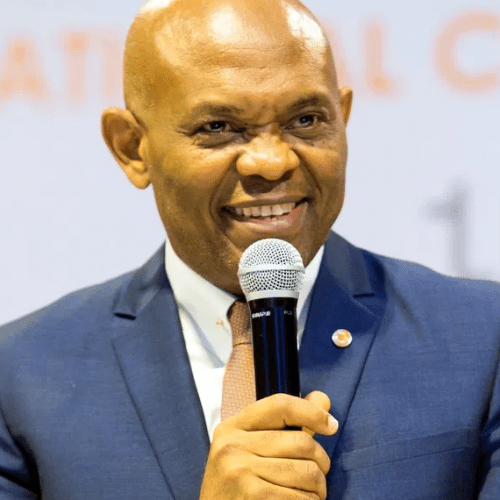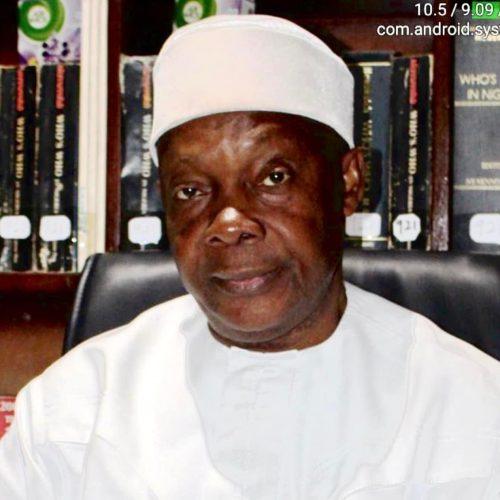Since 1999, there is hardly any Nigerian president who has not said—or of whom has not been said—that he is no magician. So when the wife of the president, Mrs Remi Tinubu, made the same statement regarding her husband, it was déjà vu. Here we go again! Nigerian leaders gallantly fight political battles to get political power, only for them to be close enough to observe the scale of responsibilities involved and instantly lose their will to perform. When they say they have no magic, they are frontloading excuses for a governance record that will not do more than offer a few additive gains that might hopefully trickle down a long food chain. They create an alibi to distance them from an impending administrative crime scene.
Unfortunately, precisely what they say they are not—transformational leadership—is what Nigeria needs.
Former President Olusegun Obasanjo started out in power yelling to the world that the country he had been elected to rule had been vandalised by his predecessors and he would rebuild from ground zero. His various anti-corruption initiatives—which set the tone for the showy way Nigeria pursues corruption allegations today—were a drive to reform a polity that had been degraded by military rulers. During his 2003 swearing-in, Obasanjo said, “Four years ago, we had no illusion that we will put right in a few years the destruction of two decades. We did not possess a magic wand with which to achieve instant transformation.” His successor initiated a series of probe to investigate the alleged financial mismanagement that racked up while Obasanjo was in office. So much for repairing what had been damaged.
Shortly after Dr Goodluck Jonathan became president in 2011, he too would make a similar self-disavowal. At an interdenominational service preceding Nigeria’s 51st anniversary, he announced he was not a magician to make the nation’s wishes come true, but God would use him all the same. What made his attenuation of leadership expectations even more ironical was that he was supposedly running a “transformation agenda.” His supporters picked up the refrain about his not being a magician. They would spend substantial time reminding us how thoroughly despoiled the country had been before their man became president, and that it would take him a significant amount of time to achieve meaningful progress. Like his predecessor(s), he too never fully rose to the occasion history had thrust upon him.
Former President Muhammadu Buhari had hardly been elected before he started extricating himself from responsibility. Like the previous presidents who told us what they were not—and never settled on what they were—Buhari was quick to tell us that his “old age” would limit his performance. While age and health impacted Buhari, they were not the primary causes of his disappointing rule. He was both apathetic to offer distinguishing leadership and also lacking in fellow feeling. At the height of collective suffering, at a specific point in our history when people starved to the extent that a man exchanged his child for food, Buhari’s spokesperson, Femi Adesina, went on a radio station to preach patience. He said, “It (governance) is not a magic wand that can be waved, and everything happens. It is a process, and a painstaking one that something good would come out from.” For all their promises that if we believed and waited, we would eventually see “the good of the land,” what came out of it?
Exactly a year ago on AIT, the same Mrs Tinubu who said her husband was no magician also said the same of Buhari. He was no magician, she said, but Buhari had laid a good foundation for her husband to thrive if he became the president. For some funny reason, these leaders—their spokespersons and partisan supporters—tend to fall back on the language of magic to disenchant themselves, to rid the public of any illusion of any potential radical change their administration portends, and to opt for mediocre leadership that adds a few gains here and there but leaves the status quo intact.
Maybe “Tinubu is no magician” is the excuse that will replace “16 years of PDP” that sustained them since 2015 but is now shorn of any charisma. I know some people might want to argue that these leaders are being careful not to raise expectations, and that incremental gains count for something too. Well, understandable, but what we are looking at here are leaders prefacing their own administration with self-defeating rhetoric, setting the bar low—and lower—for themselves, and still failing.
When a Nigerian leader says, “I am not a magician,” it is a shorthand for saying they have neither a clue nor an overriding vision. The best they can do is build a highway here, inaugurate a secretariat there, pay salaries and pensions, show up to give worn and uninspiring speeches on special occasions, dutifully represent the country internationally, and just mark time until it is either time to either re-contest or go home. When a leader says they have no magic, they mean they are mediocre who did not know the scale of what they signed up for and are now intimidated by the reality of what their job entails.

Looking at Nigeria today—and perhaps the whole of Africa—you will realise that what they say they are not is exactly what we need: leaders who can perform magic. When a society is as low as we are on every ground of human development indices, we first need transformational leadership that can enforce radical changes before gradually settling for incremental gains to sustain growth and development. Things are so bad, so degraded in this country, that mere incremental gains will only scratch the surface of our problems. Government after government, we get treated to the same story of leaders admitting they lack transformational magic. The best they ever do is micromanage to add small gains to the little they found on the ground. While incremental gains are still gains, what plays out in Nigeria are mere additions not calculated to be generative and therefore roll back quickly when they encounter slight stressors.
We need leaders capable of transformation, not the ones who wring their hands while moaning about the dire situation they inherited. Finding one is no mean task. Such a leader must have intelligence and strength—physical and moral—to pull off the feat. We are talking about a leader who is convinced that our time has come to stop wandering in the wilderness and start to live as humans, not another talker who will tell us to “suffer now and enjoy later” as if we have not heard that to death. Bola Tinubu’s Independence Day speech was full of such enjoinment to endure as that is not the story of our Nigerian lives. He said, “We must endure this trying moment…reform may be painful, but it is what greatness and the future require…. There is no joy in seeing the people of this nation shoulder burdens that should have been shed years ago. I wish today’s difficulties did not exist. But we must endure if we are to reach the good side of our future.”
How often must we listen to this corny talk of suffer-now-enjoy-later? By now, we should all be tired of leaders who admit they have no transformational magic inside their bellies. They are not what we need. Our situation urgently requires leaders who can think deeply, dream of greatness, and act decisively. If one gets to Aso Rock and finds they are a misfit, they need not waste our time and theirs telling us what they lack. They should return home and we will send another representative who knows what they are doing.


















